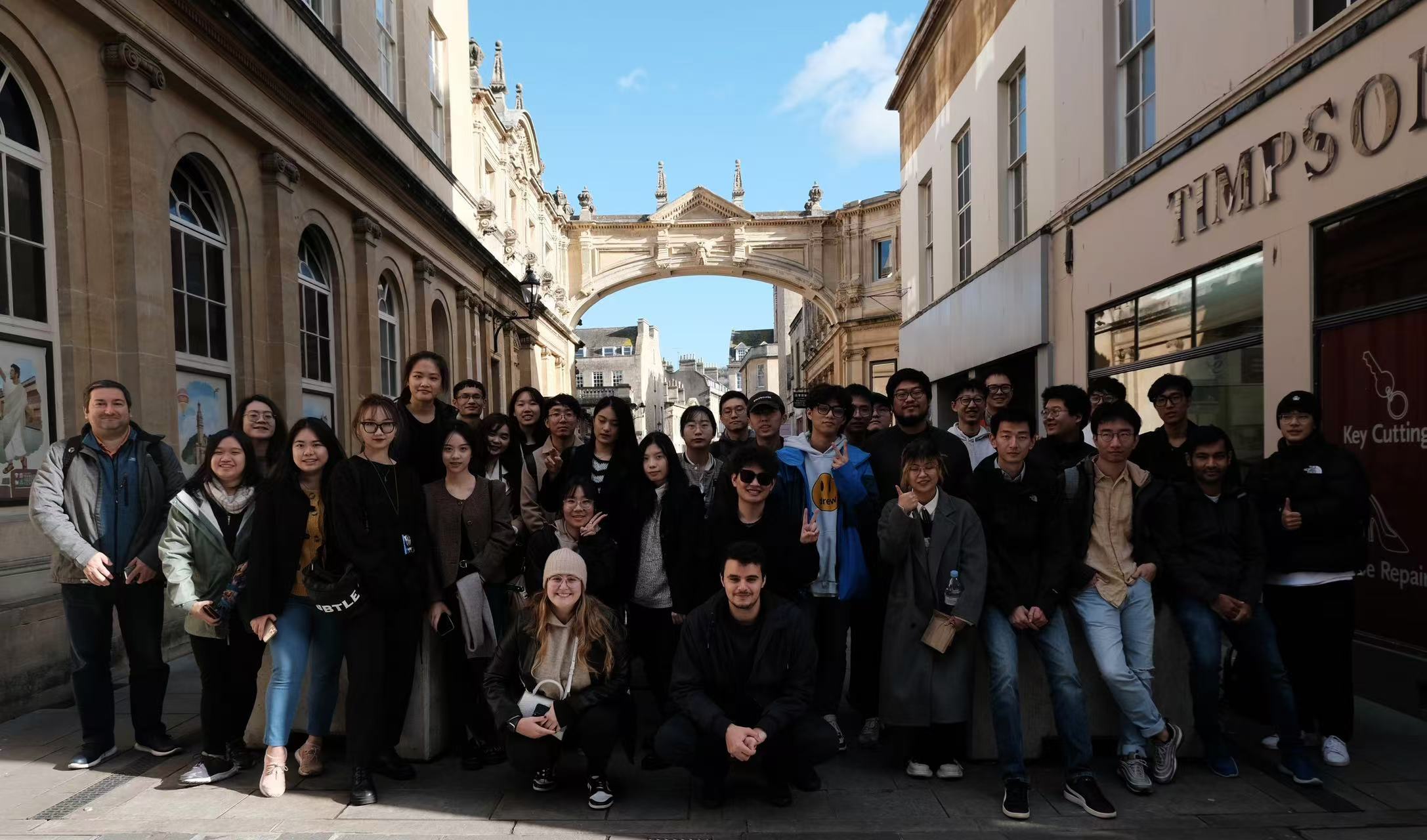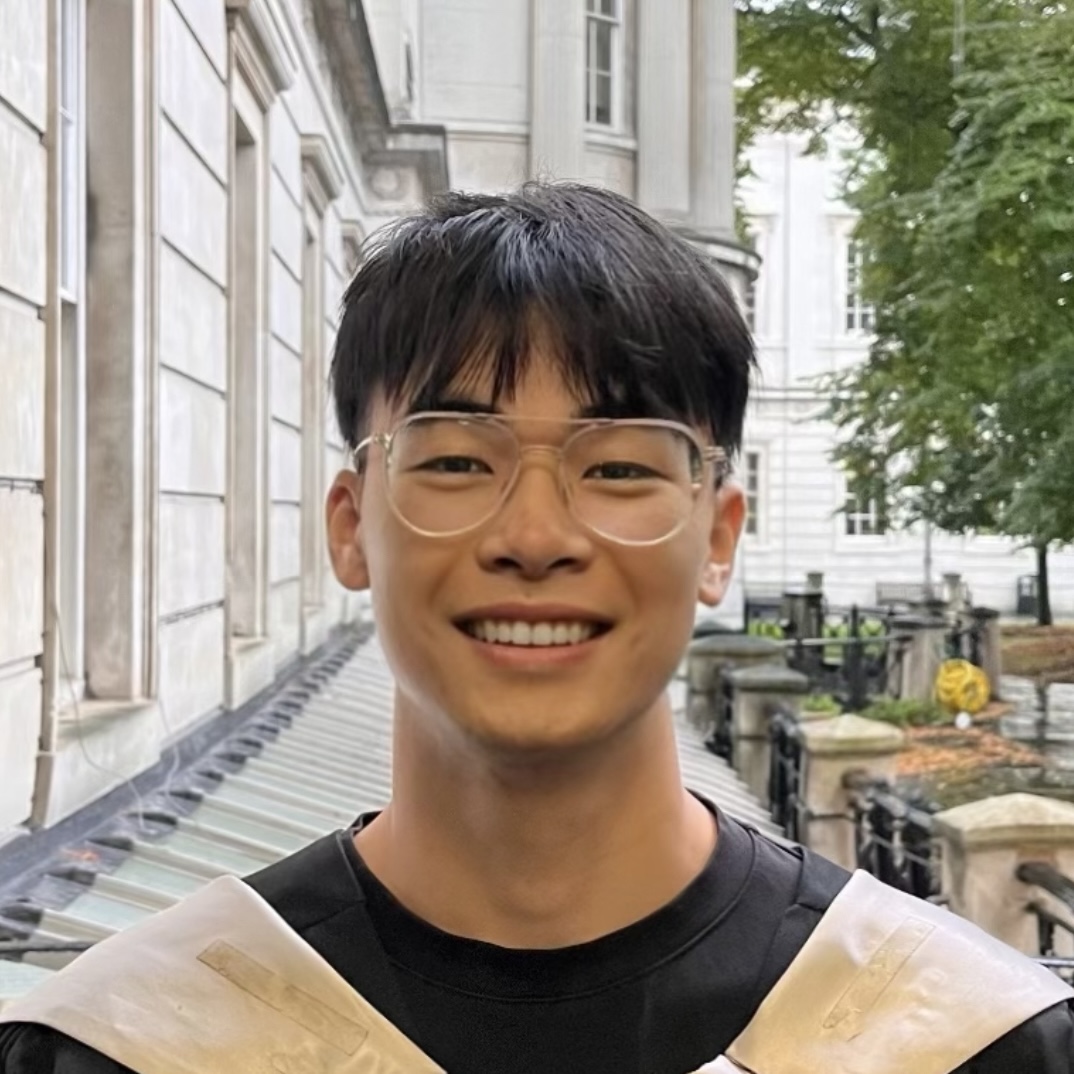Smart Buildings and Digital Engineering MSc alumni spotlight: Wenhao Zhang
Published:
Former Smart Buildings and Digital Engineering MSc student, Wenhao Zhang, shares his highlights study Smart Buildings and Digital Engineering MSc at UCL.

Wenhao joined us to study Smart Buildings and Digital Engineering MSc in 2022, looking to explore his interest in AI and building energy-efficient controls and gain programming skills. Read about his experiences studying in London, and how this has lead to undertaking a funded PhD at the National University of Singapore.
Q&A with Wenhao
What were your academic and professional interests and experiences before coming to the course?
Before joining UCL, my interests were primarily centred around energy-efficient control and indoor thermal comfort, which I explored during my BEng in Architectural Environment Engineering at the University of Nottingham. Professionally, after completing my undergraduate degree, I worked for a year as an energy consultant at the China Academy of Building Research. My main responsibilities included developing building energy simulation software and designing ultra-low energy buildings.
Why did you join the course?
I joined this course due to my strong interest in AI and building energy-efficient controls, both of which require advanced programming skills. However, I did not have the opportunity to learn programming systematically during my undergraduate studies. This course offered a comprehensive selection of programming-related courses and projects, such as the Machine Learning in Smart Buildings, which motivated me to choose this program.
What aspects of your studies did you enjoy the most, and why?
I particularly enjoyed the integrated building design project in this master’s program. This project required us to collaborate with individuals from diverse backgrounds to complete a building design proposal that meets health, well-being, and sustainability criteria. During our studies, we would learn various modelling and simulation software, as well as how to enhance design and optimisation processes through programming techniques. This design project provided us with a valuable platform to understand how to apply the techniques we learned to real design projects, and allowed us to fully express our creativity.
How did you experience life as a student in London whilst studying on the course?
My year studying in London remains one of the most enchanting chapters of my life. I treasured every person I met and every moment I experienced. From savouring the serene sunrise and Asahi by the River Thames, to basking in the sunset glow at Tamesis Dock and Primrose Hill, and cycling along the picturesque Grand Union Canal and through Hyde Park, these moments have carved a permanent place in my heart as some of my most cherished memories.
How soon after completing the course did it take you to find work, and what was your first role?
As the winner of the 2023 UCL - DesignBuilder Award, I was granted an opportunity to join DesignBuilder Software Ltd as a technical writer following my graduation from UCL. This position allowed me to combine my modelling skills with my expertise in programming, focusing on developing DesignBuilder Scripting Basics training content covering EMS and Python Scripting for runtime, pre and postprocessing of simulations along with DesignBuilder API.
Tell us about your current role: What is the core purpose and typical activities?
I am currently a PhD student at the National University of Singapore, working on a research project to study the impacts of heat exposure on sleep and activity. My core responsibilities include managing the preparatory tasks for the field study, analyzing the collected data, developing a just-in-time adaptive intervention models to enhance sleep quality. This role allows me to apply my expertise in smart building control and indoor environmental quality to real-world health and comfort challenges.
Which parts of your student experience were the best preparation for your job?
The rigorous research methodologies and the critical thinking skills honed during my time at UCL have been instrumental in preparing me for my current research-oriented role.
What are your major career milestones since completing your studies?
A major career milestone since completing my studies was receiving a fully funded offer for a PhD program. This achievement has enabled me to continue my research and further my expertise in the field of smart building technologies.
What are your future ambitions?
My future ambition is to continue researching in this field with a focus on developing innovative solutions that can significantly improve energy efficiency and occupant comfort on a global scale.
What advice would you give to a student considering the course or looking to get into a career in your sector?
I would advise students to embrace every learning opportunity and actively engage in research that interests them. This program offers many industry internship opportunities, which are invaluable for gaining practical experience and understanding real-world applications. These internships can serve as a gateway to entering the industry and should be taken full advantage of.
Original article: Link
